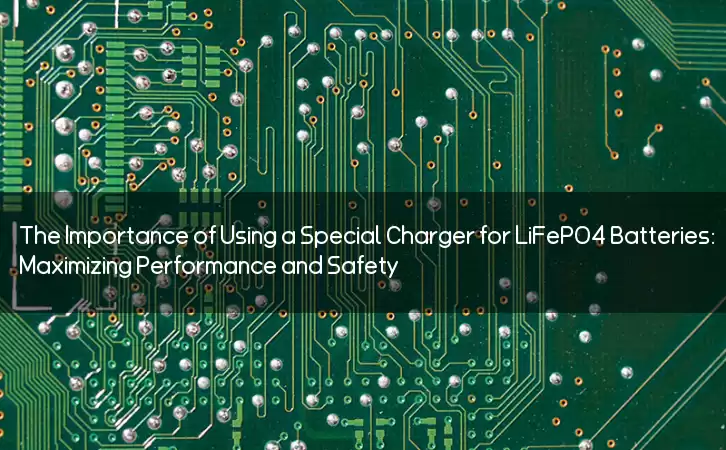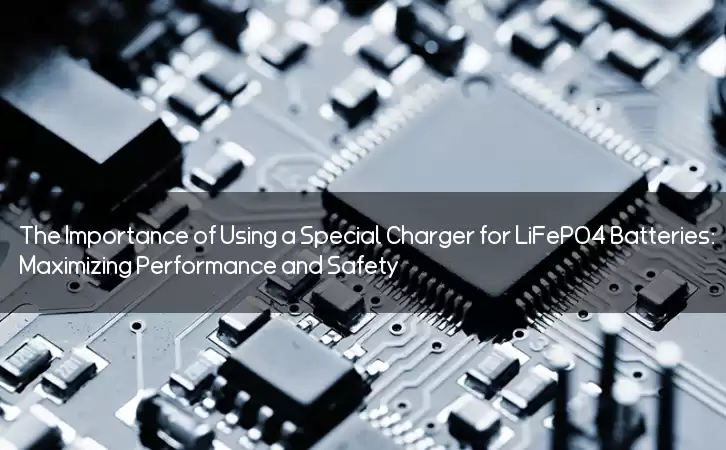Information Center
The Importance of Using a Special Charger for LiFePO4 Batteries: Maximizing Performance and Safety
Published:2023-08-01 20:32:15 Author:Green WCND Views:86Introduction Lithium iron phosphate (LiFePO4) batteries have become popular because of their high energy density and long life. They are used in various applications such as electric vehicles, solar panels, and portable devices. Despite their impressive qualities, people often wonder whether LiFePO4 batteries require special chargers or can be charged using conventional chargers. This article will explore this question in detail.

Do LiFePO4 Batteries Need a Special Charger? The short answer is yes, LiFePO4 batteries do require a special charger. Unlike other types of rechargeable batteries such as lead-acid or nickel-cadmium batteries, LiFePO4 batteries have different charge and discharge characteristics that require a unique charging profile. Using a conventional charger can lead to reduced battery performance, battery damage, and even safety hazards.

LiFePO4 batteries have a different chemistry than conventional batteries. They have a flat discharge curve, which means they can maintain a consistent voltage across the entire discharge cycle. This makes them ideal for high current discharge applications such as electric vehicles. However, this also means that their charging profile needs to be carefully controlled to avoid overcharging, which can lead to reduced battery life, reduced capacity, and even thermal runaway.
A specialized LiFePO4 charger is designed to regulate charging voltage, current, and temperature to maintain optimum battery performance and avoid overcharging. LiFePO4 batteries require a charging voltage of 3.2-3.6 volts per cell, which is lower than the typical 3.7-4.2 volts for other lithium-ion batteries. A specialized charger adjusts the charging voltage to match the battery specifications, preventing overcharging and ensuring longer battery life.
Chargers for LiFePO4 batteries also feature advanced diagnostic and safety features to prevent battery damage and ensure safety. For instance, some chargers have built-in protection against overcharging, over-discharging, over-voltage, and short-circuiting. They also have temperature sensors that monitor the battery temperature and prevent charging if the battery is too hot or too cold.
Conclusion In summary, LiFePO4 batteries are unique energy storage devices that require specialized charging to optimize their performance, protect their lifespan, and ensure safety. Using a conventional charger can lead to reduced battery life, safety hazards, and poor performance. Investing in a specialized LiFePO4 charger is necessary to derive maximum benefit from your LiFePO4 battery and protect your investment.
Power Adapter Design and Customization Guide for Portable Electric KettlesI. Common Design Types for Portable Electric Kettle Power AdaptersPortable electric ke···
I. Common Design Types of Power Adapters External Independent Type (Most Common) Design: A standalone adapter (e.g., "black brick") connected to the p···
Handheld Vacuum Cleaner Power Adapter Selection GuideIntroductionHandheld vacuum cleaners have become a mainstream tool for household cleaning due to their port···
Drill Power Adapter Selection Guide.drill-container { font-family: Arial, sans-serif; line-height: 1.6; max-width: 800px; margin: 0 auto; padding: 20px; } .dril···





